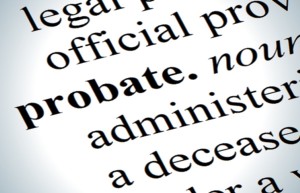Texas Probate Basics

The basic steps required in estate administration
When your loved one dies, the property and assets which constitute that person’s estate must be distributed to their heirs or beneficiaries. Generally speaking, in order for those assets to be distributed properly the estate must go through the probate process. The basic steps required during the probate process include:
- proving the existence of a valid will if there is one,
- identifying the property
- creating an inventory,
- appraising the property as necessary,
- paying debts and funeral expenses,
- paying estate taxes and fees, if required,
- distributing the remaining property to heirs and beneficiaries
While you may not need help at every step, it may be a good idea to consult with a probate lawyers at some point during the process.
When is it necessary to hire a probate attorney?
If you are trying to decide whether you need a probate lawyer, there are a few questions you can ask yourself. The more of these questions you answer “yes,” the more likely it will be that the advice and experience of probate lawyers will be helpful. Basically, these questions help you determine how difficult the process may be for you and whether there is a high potential for complications.
Will full probate proceedings be required for this estate?
In many states, an estate may qualify for a simpler probate process when that estate is relatively small. Most states have what’s called “summary probate,” which allows for a simpler, more streamlined process. In some cases, it is possible to basically bypass probate altogether with a basic sworn statement.
For example, in Texas summary probate administration is available for small estates, where the individual dies without a will and the value of the estate, excluding homestead and exempt property, is $50,000 or less. In those cases, a Small Estates Affidavit can be filed with the probate court for approval, to transfer only the homestead and no other real estate. Now, if the estate you are administering does not qualify for a simplified probate process, you should seriously consider hiring a probate lawyer.
Will family members most likely have disputes or contest the will?
If it seems likely that the family members of the deceased will not agree on various aspects of the estate administration or you are pretty sure a will contest is inevitable, then it would be best that you speak to a probate lawyer as soon as possible. Likewise, if there is a good chance that a family member will file a legal action to contest some component of the estate administration, having a lawyer on board would be wise.
Does the estate involve complex assets or a substantial amount of property?
If the estate you are administering consists of only basic assets such as vehicles, bank accounts, a house and personal property, then it is more likely that you can handle the probate proceedings on your own. On the other hand, if the estate includes commercial real estate or business assets that require special handling, then it may be best to hire a probate attorney earlier rather than later. With business assets, you will need an expert to help you appraise and sell the business, especially if there is no business succession plan in place.
Is it likely that there will be insufficient funds to pay the debts?
The best case scenario would be an estate with sufficient funds to pay all of the debts, taxes and expenses, with sufficient assets left over to be distributed to the heirs or beneficiaries. That is not always the case, though. If it looks like there won’t be enough money from which to pay all the debts, you must decide which creditors to pay first. This is not left up to your discretion, however. Depending on the laws in your state, certain creditors will have priority over others. If you are not sure how this works, you should to seek legal advice immediately.
Based on the size of the estate, will there be federal estate taxes to pay?
While in most cases, the value of an estate is low enough that federal estate taxes will not be imposed. In fact, with the exemption amount currently at $5.45 million, nearly all estates are exempt. However, there are some estates that exceed the exemption amount, especially in Texas where there are so many millionaires. Another consideration is state-imposed estate taxes. If the deceased lived in a state that imposes estate taxes, there may still be a tax liability to deal with. Currently, fifteen states and the District of Columbia impose an estate tax. Texas does not.
If you have questions regarding probate, or any other estate planning needs, please contact The Vermillion Law Firm, LLC for a consultation either online or by calling us toll free at (972) 366-7201.
